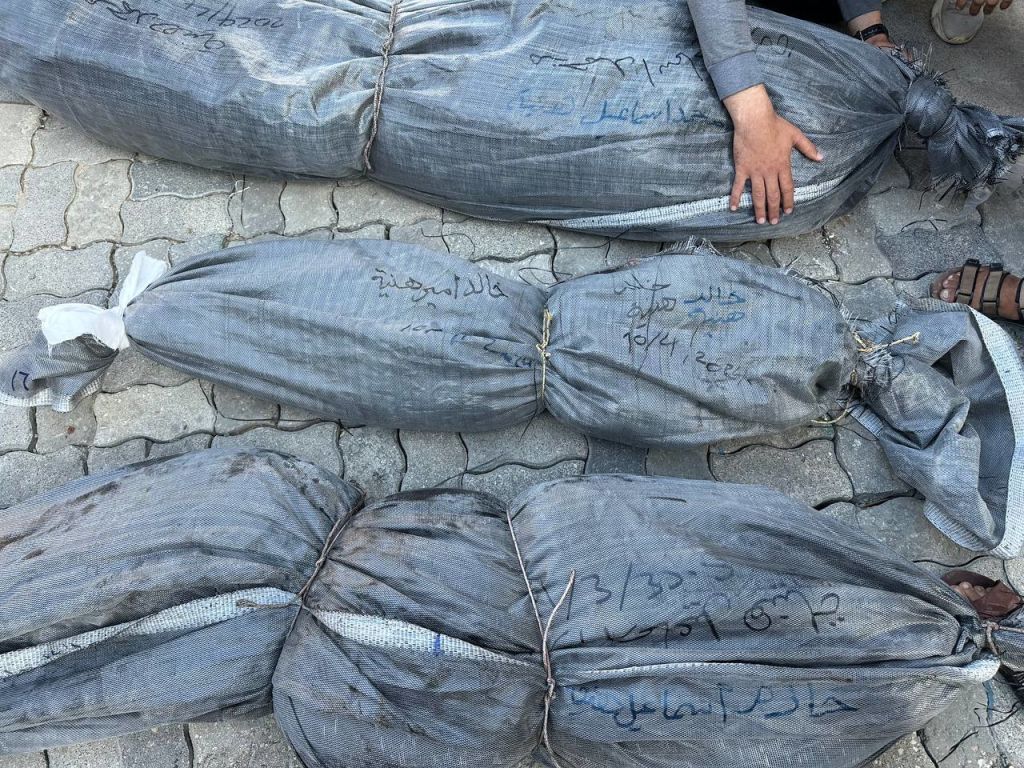
Hamas chief Ismail Haniyeh said the Palestinian group will not budge from its position on deadlocked ceasefire negotiations after Israeli forces killed three of his children and four of his grandchildren in northern Gaza on Wednesday.
Haniyeh, who is based in Qatar, confirmed the deaths of his sons Hazem, Amir, and Mohammed, who he said had been visiting relatives for Eid al-Fitr, the celebration of the end of Ramadan, at Shati refugee camp when they were targeted. Hamas also said in a statement that four of Haniyeh’s grandchildren—Mona, Amal, Khaled, and Razan, of undisclosed ages—were killed along with their parents in the holiday attack, which the Gaza Government Media Office called “a massacre.”
“All our people and all the families of Gaza residents paid a heavy price from the blood of their children, and I am one of them,” Haniyeh said in reaction to the news in a statement published by Hamas.
Israel Defense Forces confirmed it targeted and killed Haniyeh’s three sons, described as “Hamas military operatives that conducted terrorist activity.” In its statement, the IDF did not mention Haniyeh’s grandchildren, who join the reported more than 10,000 children casualties of the war in Gaza. Haniyeh’s family members were among over 120 people killed on Wednesday, according to the Hamas-run Gaza health ministry, which says that more than 33,000 people have been killed in Gaza in the six months since the outbreak of the conflict.
Haniyeh, chair of Hamas’ political bureau, said about 60 of his family members have been killed. After his latest loss, he received condolences from Middle Eastern leaders, including the President of Turkey and Prime Minister of Qatar.

Ayman Alhesi—Anadolu/Getty Images
In recent weeks, Hamas and Israel have been engaging in indirect ceasefire negotiations, facilitated by international mediators, though the talks have reportedly stalled.
Israel is calling for the return of all hostages in exchange for a temporary ceasefire, while Hamas is asking for a permanent end to hostilities, the full withdrawal of Israeli forces from Gaza, the return of displaced Gazans to their homes in the north, and the facilitation of humanitarian aid and reconstruction of the decimated enclave. Meanwhile, Israel maintains that it will not end the war or withdraw from Gaza until Hamas is no longer a threat. Each side has rejected the other’s demands.
The recent deaths of his family members have not altered Hamas’ stance, Haniyeh insisted on Wednesday.
“If they think that targeting my children at the peak of these talks before the movement’s response is submitted will cause Hamas to change its positions, they are delusional,” Haniyeh told Al Jazeera on Wednesday. “The blood of my children is not more valuable than the blood of the children of the Palestinian people.”
The U.S. has expressed frustration at the seeming indiscriminateness of Israel’s military campaign in Gaza, especially after the killing of seven World Central Kitchen aid workers last week. President Joe Biden has changed his tone on ceasefire negotiations, urging Israel rather than just Hamas to immediately accept a temporary ceasefire deal. “What I’m calling for is for the Israelis to just call for a ceasefire—allow for the next six, eight weeks, total access to all food and medicine going into the country,” Biden said Wednesday. Nevertheless, Biden has maintained that U.S. support for Israel remains “ironclad.”
More Must-Reads from TIME
- Why Trump’s Message Worked on Latino Men
- What Trump’s Win Could Mean for Housing
- The 100 Must-Read Books of 2024
- Sleep Doctors Share the 1 Tip That’s Changed Their Lives
- Column: Let’s Bring Back Romance
- What It’s Like to Have Long COVID As a Kid
- FX’s Say Nothing Is the Must-Watch Political Thriller of 2024
- Merle Bombardieri Is Helping People Make the Baby Decision
Contact us at letters@time.com